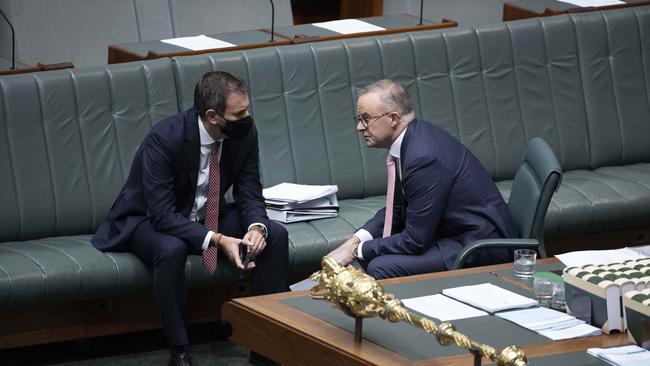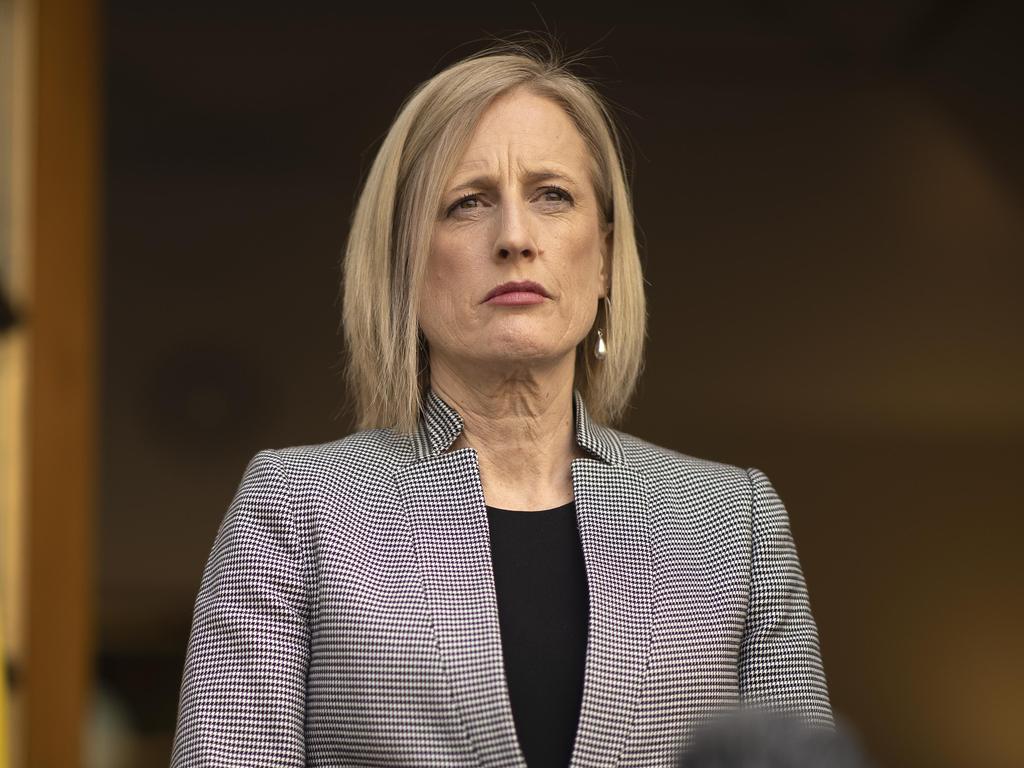Albanese and Chalmers are playing the long game
The budget won’t hold any surprises because the Treasurer is determined to spread the pain | THE BUDGET: WHAT WE KNOW

There are two reasons for this predictability. The first is that for more than two years, before the election, during the election and since the election, Anthony Albanese and Jim Chalmers have been saying exactly what they intend to do in their first budget.
And they intend to do it.
The second reason is that because of the timing of the last budget, the last election and the Prime Minister’s careful delay in recalling parliament, the next election doesn’t have to be held until later in 2025 providing the potential for four budgets – next Tuesday’s, May 2023, May 2024 and early in 2025.
Political attack lines from the Treasurer and Albanese have set the framework for a first budget. Spending cuts are directed at “the Coalition’s waste and rorts”, many election promises will be met in a front-end-loaded budget that folds in Labor’s spending with the Morrison government’s pandemic spending, and dire economic forecasts will be used to buy some time on tough decisions, cutting expenditure and economic reform.
Chalmers’ first budget will not contain the disastrous proposals in John Dawkins’ first budget which effectively killed the Keating government. It will not have the promise-breaking spending cuts of Joe Hockey’s first budget which undermined Tony Abbott’s leadership. And it won’t have the “shock and awe” of Peter Costello’s two-year plans in 1996 to return the budget to surplus.
Both Chalmers and Albanese have been around long enough to avoid the fatal trap of rushing into making all the hard decisions in the first budget after an election and breaking promises and losing public support. They are also in a position to, justifiably, argue that the dire global economic outlook with inflation surging in the US, Europe and Britain at a time of wartime uncertainty and natural disasters, there has to be time to assess the “evolving” international circumstances.
So, this budget will attempt to settle the ledger on as many election promises as possible, including wages, childcare, aged care, road and rail infrastructure funding, expansion of the NBN network, Tasmanian power links, and cost-of-living support.
Albanese has sought to turn a perceived weakness over lack of Treasury experience into a strength over infrastructure, and argues that for all the billions spent on pandemic support there is “nothing to show for it” in a concrete sense. It’s a subtle way to put a different slant on the billions in pandemic job support which saved hundreds of thousands of jobs without actually criticising it.
During the election campaign, on election night and as late as this week Albanese has highlighted his wish to see his government as one that “does things” and “delivers on promises” and that’s why this budget will be using the revenue savings it can get from cancelling Morrison government programs and raising tax from multinationals to offset those promises.
The other facet of this budget is to lay out the grim economic outlook, pile the costs into this first post-Morrison government economic statement, point to the inflation danger (especially after the floods), and make room for the “conversation on tax” as Chalmers puts it. No matter what Chalmers does, there’s still going to be a “trillion-dollar national debt” and a likelihood of “decade of deficits” when he finishes his speech.
The contents of this Tuesday’s budget are not about a make-or-break first go at change but laying the groundwork for the 2023 budget and perhaps two more beyond.
As Chalmers tells Inquirer: “This is the first budget of three or four this term. It’ll take more than one budget to put things right. It’s about restraint and resilience but it’s about patience too.
“We’re playing a long game here, stepping out our plan in considered ways but making a start right away,” he says as he warns of the “impact of natural disasters in the supermarket aisles” on prices of fresh produce and inflation.
“Australians are already under the pump, and this will make things a little bit tougher for people. There’s no use pretending otherwise. At the same time as we update our inflation forecasts, we also have to factor in other things that are happening in the economy – the global situation is a big part of it.”
The decision not to take the traditional political path of using the first budget as a hammer blow and recover later – although Costello managed to do both in 1996 to deal with Labor’s “$10bn black hole” – risks losing momentum, being seen to be not doing enough, and missing an opportunity which may disappear in changing circumstances.
But this is where Chalmers argues that while playing the “long game”, Labor is also making “a start right away”.
There is no bigger budget challenge this decade than the cost and delivery of the NDIS, which Bill Shorten disclosed this week had a budget blowout of $8.8bn as he announced bringing forward a review of the disability insurance scheme.
The Government Services Minister is using the same language about Coalition waste and ineptitude as well as fraud to drive the review and necessary changes in a system that has become a grab bag of cost shifting from health and social programs as well as an overly expensive scheme because of exaggerated expectations and a lack of definitions and priorities.
This is the sort of reform that has to start now and can’t wait until the budget in May next year but rather must be showing signs of improvement in both cost cutting and delivery to those in greatest need within months.
The NDIS is emblematic of the fine line Chalmers has to tread in not frightening the public, making necessary spending cuts, ensuring equitable delivery, maintaining political momentum, not breaking promises, and preparing for an even worse global economic future. It’s not a choice of a one-hit wonder budget or a long-term plan for three or four scaled plans where Chalmers puts his stamp on economic management, but a combination of both.
Like Chalmers, Peter Dutton recognises the paramount position of cost of living in the public mind and that inflation is going to rise and make things worse for working Australians.
The Opposition Leader tells Inquirer: “Labor will cram in as much spending on election promises into this budget to pump up the expenditure and try to blame the previous government.
“We will take a sensible attitude and support good measures or point out where we have differences, but Labor has to be held to account for its broken promises,” Dutton says.
The Opposition Leader will relentlessly target Albanese’s key promise on cutting energy bills by $275 a year at a time when gas and electricity prices are set to soar.
For all these reasons, Tuesday’s budget is looking less like being the dramatic opening scene of an economic tragedy and more like an overture to a full symphony to come.








The politics of Labor’s first federal budget in more than 10 years are perfectly predictable: there will be no major surprises; no unflagged spending cuts; no new domestic taxes; no major economic reforms; and, especially, no shock and awe.